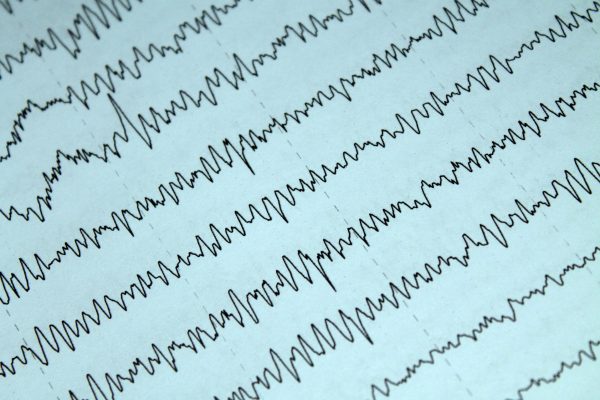by: Rusheil Patel
Can the perception of what you smell act as a biological mechanism for storing fat? Phrased simply, does your sense of smell influence weight gain? Researchers at UC Berkeley have found compelling information suggesting that the odor of what we eat may strongly affect how our body manages the incoming calories. For example, if you are unable to smell the food you are taking in, your body may burn the incoming food rather than store it as fat. From what can observed in our own society, we know that severe weight gain can result in a multitude of serious health problems. The most common weight-related issues include suffering from obesity or diabetes. The olfactory or “smell” system is proving to be a new area of investigation where unique approaches can be applied in combating obesity and diabetes.
Sense of smell facilitates our appreciation for food, helping us select what we eat and how to best enjoy its taste. However, we have very little understanding of the ways our sense of smell influences our systemic physiology or our metabolism as a whole. Past studies have allowed us to recognize the fact that our olfactory acuity is heightened in the fasting state. This means that when we are hungry, our ability to smell food is increased. Studies have also shown the opposite to be true; when we are full or satisfied, our olfactory sensory perception reduces. It’s clear that olfaction and eating behavior are linked, but how can it be characterized? Diminish an animal’s ability to smell, and see what happens. This is exactly what researchers Celine Riera, Andrew Dillin and others at UC Berkeley sought to do.
The researchers found that smell-deficient mice ate the same amount of fatty food as their counterparts with an intact sense of smell; however, the mice that could still smell experienced significant increases in fat above their normal weight. Mice were fed either a normal-chow diet or a high-fat diet, and body weight was reduced in the mice that were smell-deficient, regardless of what diet they had. In fact, smell-deficient mice that were fed a high-fat diet displayed a considerable 16% reduction in body weight relative to the control-mice which had normal olfaction. The different feeding groups, with normal chow and high-fat diet, both retained diurnal feeding patterns, meaning they did not lose their appetite after a night of no food. Therefore, the leaner phenotypes that the smell-deficient mice developed, regardless of the type of food they were fed, was never a result of a loss of appetite. These findings point to a significant connection between the olfactory system and the parts of the brain that regulate our metabolism. Thus, we are able to see that weight gain may rely more on our perception of what we consume rather than how many calories were actually taken in. Mice that were smell-deficient could not perceive the ingested calories as they normally would, and subsequently did not gain as much weight as those mice that retained their sense of smell. This understanding of the relation between our olfactory system and our metabolism could open up the possibility of creating drugs that target our olfactory neurons to reduce weight gain.
The researchers utilized gene therapy to knock out a mouse’s sense of smell, destroying olfactory neurons in adult mice. Since the mice were old enough, their mature olfactory cells could be precisely eliminated without affecting their stem cells. This allows the mice to regrow their olfactory neurons after about 3-4 weeks, making their loss of smell only temporary. Two different techniques were used to block the sense of smell. In one, researchers genetically incorporated the Diphtheria Toxin Receptor to be expressed on olfactory neurons but no other cell. This way, when the mice are administered Diphtheria Toxin, only olfactory neurons are destroyed and all other cells are left unaffected. In the second mechanism, a virus that only affects olfactory neurons was engineered to be able to carry the Diphtheria Toxin Receptor into those cells. Once again, administration of the Diphtheria Toxin could eliminate the targeted olfactory cells. Both types of smell-deficient mice ate the same amount of high-fat food as mice that could still smell, yet the smell-deficient mice gained only up to 10% more weight while normal mice gained up to 100% of their normal weight. Further, insulin sensitivity was another crucial quality to look at in the mice. Our bodies need to remain fairly sensitive to the natural insulin hormone so that our cells can take up glucose from our blood after a meal. When insulin sensitivity is disrupted, taking up glucose becomes difficult which leads to high blood sugar and exacerbates any diabetic and obesity-related issues. For the normal-olfaction mice that were fed a high-fat diet meant to induce obesity, insulin resistance increased and their response to glucose became disrupted, while smell-deficient mice showed normal insulin sensitivity and glucose tolerance.
Researchers further looked into the causes of fat reduction in smell-deficient mice and hypothesized that their fat is dissipated as a result of the mice using up more energy. They found that oxygen consumption and energy expenditure were significantly increased in smell-deficient mice that were fed high-fat diets, yet there was no difference in physical activity between these mice and normal control mice. The increase in oxygen consumption and energy expenditure is characterized by an increase in “sympathetic nervous system” activity, which is normally elevated in humans when we need to utilize our bodily resources, such as during exercise or escaping a threat. This was further measured by noting that the smell-deficient mice turned many fat-storage cells into “brown fat cells”, a type of cell with the ability to burn many of its high energy-storing molecules to produce heat. Another type of cell, white fat cells, which normally cluster around internal organs and are associated with poor health outcomes, were reduced in size in smell-deficient mice, and were enlarged in control mice. Furthermore, researchers wanted to know if mice that were already obese could benefit from a disruption of their olfactory sensory neurons. They found that obese mice with a pre-existing glucose intolerance, a condition often leading to diabetes, lost weight and regained proper glucose tolerance levels. This landmark result offers surprising hope of possible treatment strategies for people who are currently suffering from obesity and diabetes, albeit its clinical applications may be several years away.
These findings make a solidified point that the olfactory sensory neurons participate in the modulation of our metabolism. For the millions of people suffering from obesity and other obesity-induced health problems such as diabetes and cardiovascular disease, this research provides confident scientific evidence in regards to approaching new avenues of treatment for such afflictions. We must consider that idea that prolonged sympathetic nervous system activity due to smell-deficiency could bring up problems of its own, such as risk of inducing heart attack, and should be taken into account when designing proper treatments. Complications and the necessity for further research aside, the olfactory system may in fact be the key to a more extensive understanding of our metabolism and how it can be manipulated to combat obesity and related health issues.




